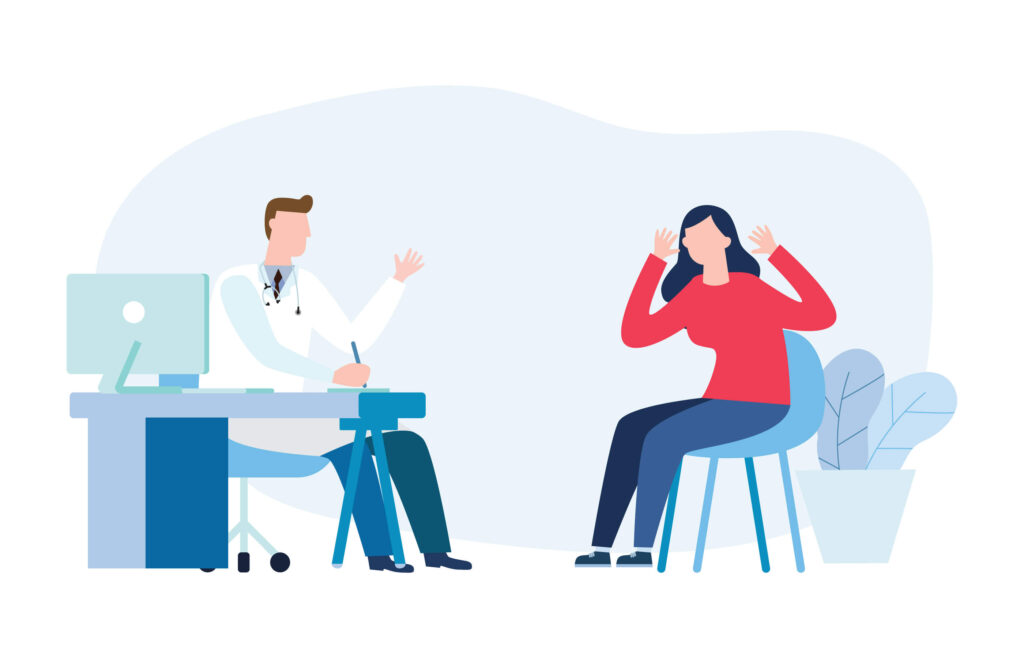Tramadol and Alcohol: The Dangers of Mixing Substances

Understanding Tramadol and Its Uses
Tramadol is a prescription medication that is often given to people who live with chronic pain, once less-powerful pain relievers no longer help. It is a synthetic opioid drug that may also be given to people after surgery, prescribed to people experiencing muscle spasms, those with nerve damage, and others who need moderate to severe pain relief. It works by blocking pain signals and may lead to feelings of mild euphoria, mood swings, or relaxation.
Because this medication has the potential to cause addiction, it has been labeled a Schedule IV controlled substance by the DEA. It should always be used as prescribed, and should never be purchased off the street or used recreationally.
One of the most common questions that comes up when a person is prescribed Tramadol is “Can you drink alcohol while taking Tramadol”. The short answer is no, Tramadol and alcohol should not be used together, but we will explore this topic further in the article below.
The Risks of Mixing Alcohol with Tramadol
The biggest risk of mixing Tramadol and alcohol is that both substances are depressants. This means that these drugs each have properties that reduce your ability to function normally, they slow your nervous system, and they reduce your body’s arousal and stimulation. In short, your heart rate slows down, your breathing may become shallower, and you may fall unconscious if you take too much. In severe cases, especially when two or more depressants are used together, these symptoms can lead to brain damage or death.
Immediate Health Risks of Combining Tramadol and Alcohol
When you combine Tramadol and alcohol, your blood pressure will skyrocket, and you may feel calm, euphoric, or high. Using these two substances together increases the risk of mental health conditions like mania, paranoia, anxiety, and delusional thinking, and you may also experience:
- Slurred speech
- Confusion
- Headaches
- Nausea
- Irritability
- Overdose

It is important to note that Tramadol overdose is not completely reversible by naloxone, so if you have taken these substances together, or are noticing symptoms of an overdose in yourself or somebody you are with, call 911 and get medical help immediately.
Long-term Consequences of Alcohol and Tramadol Co-use
Using alcohol with Tramadol increases the risk of serious long-term health problems. Some long-term consequences of abusing alcohol and Tramadol include:
- Seizures
- Kidney damage
- Liver disease
- Memory loss
- Circulatory problems
- Hallucinations
- Stroke
- Dependence
It is safest to completely avoid using these two substances together. If you are prescribed Tramadol, you should stop drinking alcohol until your prescription is finished.
Can You Drink Alcohol While Taking Tramadol?
No, it is never a good idea to combine alcohol and Tramadol. It is a dangerous mixture that depresses the central nervous system, which can cause side effects that can lead to brain damage, coma, and death due to sedation, a slowed heart rate, and slowed breathing. In other words, your body can become so sedated that you don’t get enough oxygen to the brain, which can kill you without immediate medical treatment.
If you have taken Tramadol, you should wait until the medication is completely out of your system before you drink any alcohol, and vice-versa. Some of the longer-acting doses of Tramadol can take anywhere from 32 to 50 hours to fully leave your system so to be safe you may want to wait a few days after your last dose of the medication before you drink any alcohol.
Recognizing the Signs of Tramadol and Alcohol Misuse
When you use Tramadol and alcohol, the brain becomes flooded with “feel-good” neurotransmitters like dopamine which eliminate pain and give you pleasurable feelings but if you continue to abuse these substances regularly, the body will stop making these neurotransmitters on its own. You will begin to feel the need to continue drinking and taking Tramadol just to feel normal. This is known as physical dependence, which, if unchecked, can become an addiction.
Signs a person may be abusing these two drugs together include:
- Slurred speech
- Dizziness
- Confusion
- Vomiting
- Slowed breathing
- Passing out
- Unconsciousness
Some common signs of a substance use disorder are:
- Experiencing strong urges or cravings
- Developing a tolerance, and needing to take more to get the same effect
- Purchasing more Tramadol on the street, or stealing others’ medications
- Spending a lot of time seeking, using, and recovering from these substances
- “Doctor shopping” or seeing multiple physicians to get more than one prescription
- Avoiding your loved ones, friends, and social activities in favor of drinking and taking Tramadol
- Experiencing trouble meeting obligations at home or at work due to substance use and withdrawals
- Withdrawal symptoms occur when you try to cut back or quit
- Continuing to abuse the substances, even when it causes serious work, relationship, or health problems in your life
- Being unable to stop, even though you are trying as hard as you can
Treatment Options for Co-occurring Alcohol and Tramadol Abuse
When getting treatment for co-occurring alcohol and Tramadol abuse, after acute detox you may want to consider an inpatient or outpatient medication-assisted treatment plan (MAT). This is a long-term form of detox that provides prescription medications to you that will reduce the worst withdrawal symptoms as your body adjusts to the lack of alcohol and Tramadol in your system. The medication doses are tapered down over time, giving you a more gradual, structured detox that allows you to move on into a rehab program without discomfort and drug cravings.
There are both inpatient and outpatient treatment plans available for addiction treatment. Your individual health, history, needs, and goals will determine the best course of action for your unique situation. When you first enter a treatment plan, you will speak to experts who will assess your needs and recommend the right path for you.
How WhiteSands Treatment Can Help with Tramadol and Alcohol Addiction
WhiteSands is a high-end treatment center, with integrated care plans that can help you overcome a substance use disorder through comprehensive care that may include:
- Acute medical detox, provided on an inpatient basis, with full access to health care, prescription medications, and other treatments and therapies to keep you safe and comfortable during detox
- A longer-term medication-assisted detox plan to help you taper off the opioid medication slowly, without suffering unnecessary withdrawal symptoms
- Inpatient rehab inside one of our luxury treatment centers in Florida, with full days of evidence-based therapy, holistic treatments, behavioral health care, psychiatric treatments, counseling, life skills programs, and more, with full access to our high-end amenities after 4:30 pm each evening
- A variety of outpatient treatment programs that can last as long as you need them to. These are customized to best suit your schedule as you slowly reintegrate back into your life, with ongoing therapy, life coaching, support groups, healthcare, and strong support
- Long-lasting aftercare programs that keep you connected to the sober community you need as a newly sober individual
At WhiteSands, we integrate scientifically proven therapies with alternative treatments and holistic healing for a whole-patient approach that addresses the health of your body, your mind, and your spirit.
Taking the First Step Toward Recovery
If you are ready to stop using alcohol and Tramadol, or if you know somebody who is struggling with addiction, you can call us at any time. 877-855-3470. Our knowledgeable, non-judgmental counselors are standing by to advise you on how to begin. You are not alone. Call us today, and we will join you as you take your first steps toward freedom from the grasp of addiction.
If you or a loved one needs help with abuse and/or treatment, please call the WhiteSands Treatment at (877) 855-3470. Our addiction specialists can assess your recovery needs and help you get the addiction treatment that provides the best chance for your long-term recovery.

